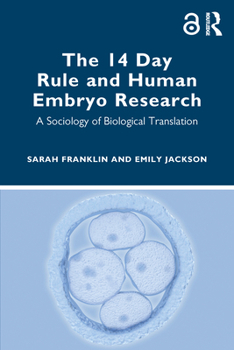The 14 Day Rule and Human Embryo Research: A Sociology of Biological Translation
This assessment of Britain's influential 14 day rule governing embryo research explores how and why it became the de facto global standard for research into human fertilisation and embryology, arguing that its influence and stability offers valuable lessons for successful biological translation.
One of the most important features of the 14 day rule, the authors claim, is its reliance on sociological as well as ethical, legislative, regulatory and scientific principles. The careful integration of social expectations and perceptions, as well as sociological definitions of the law and morality, into the development of a robust legislative infrastructure of 'human fertilisation and embryology', enabled what has come to be known as the Warnock Consensus - a solid and enduring public acceptance that has enabled successive parliamentary approval for controversial areas of scientific research in the UK, such as stem cell research and mitochondrial donation, for over 30 years. These important sociological insights are increasingly relevant to new biotranslational challenges such as human germline gene editing and the use of AI assisted technologies in human reproduction. As the legislation around the 14 day rule begins to be reviewed worldwide, the important lessons we can learn from its global and enduring significance will apply not only to future legislation governing embryo research, but to the future of biological translation more widely.
An important volume for those interested in reproductive studies, biogovernance and biological translation, it is suitable for researchers, clinicians and students in medicine, biosciences, sociology, and science and technology studies.





